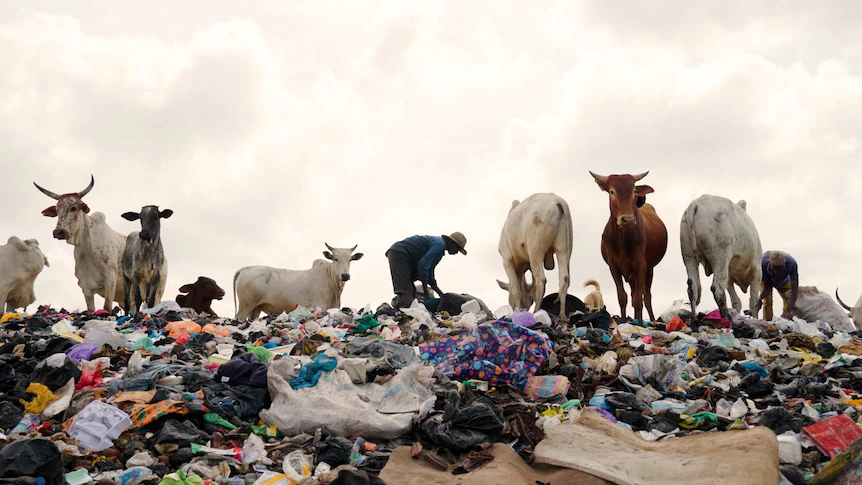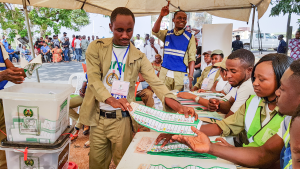Author: Yaku Blessing Ebiere | yakublessingebiere20@gmail.com
Ngeria ranks ninth globally among countries with the highest contributions to plastic pollution with about 2.5 million tonnes of plastic waste annually. Unfortunately, over 88% of the plastic waste generated in Nigeria is not recycled. Instead, much of it ends up in water bodies – rivers, lakes, drains, lagoons and the ocean. Considering this background, this article seeks to examine the negative impact of plastic waste to the environment. It also examines how plastic waste has been tackled in other jurisdictions with Rwanda as a case study. It wraps up by recommending possible measures the Nigerian Government can adopt in curbing the plastic waste menace.
The term ‘plastic’ is a generic term used for polymeric materials. The polymers used to make plastic materials are diverse, comprising of seven different polymer resins and these materials are identified by a resin identification number. These include: Polyethylene Terephthalate (PETE), High Density Polyethylene (HDPE), Polyvinyl Chloride (PVC), Low Density Polyethylene (LDPE), Polypropylene (PP), Polystyrene (PS), and a final category referred to as other class. The class ‘others’ is also broad with many polymer types, such as Polycarbonate (PC), Acrylic and Nylon.
Plastics appear in virtually every product people use everyday, ranging from the cars we drive to the packaging we use and even to the clothes we wear. However, despite the plethora of benefits of plastic products, it is no doubt that the ever-increasing production of plastics has now become a global problem. Global studies have shown that plastics account for approximately ten percent of the waste humans generate. Plastic waste comes in various shapes, forms and sizes including plastic bottles, floating barrels, plastic sheets and sub-microscopic particles and fibres.
This is a huge problem because plastics are non-biodegradable. Studies have shown that it will take over 500 years for plastics to completely decompose. Plastics travel long distances and eventually settle in water bodies like Lakes, rivers and Oceans.
The Convention on Biological Diversity estimates that plastic pollution has impacted approximately 663 species of Marine life. The amount of plastic released into marine systems annually is approximately 10 million metric tonnes and projections suggest that by 2025 up to 150 million metric tons of plastic will be in the world’s oceans. Plastic bags have been mistaken for food, especially those that consume jellyfish. Plastic waste also pose a huge risk of suffocation of marine animals. Ingestion of plastic particles by aquatic wildlife also poses a threat to humans who may unknowingly consume plastics embedded in seafood. Therefore, if marine plastic pollution continues unabated, it can result in obvious ecological, health and economic impacts, that in turn, negatively impact the socio-cultural dimensions of human wellbeing.
Plastic materials have contributed to the release of environmentally relevant particulate plastics which can be found almost everywhere and may be present in drinking water. In particular, fine particulate plastics have been observed to translocate into body tissues and cells where they are capable of provoking endocrine disruption, genetic mutations, and cancer responses.
On August 10th, 2008, the Rwanda Parliament enacted Law number 57/2008 prohibiting the manufacturing, importation, use and sale of polythene bags, hence, making Rwanda one of the first countries in the world and in Africa to actually enforce a ban on the use of non-biodegradable plastic bags in its territory. Since, then, it has been illegal to produce, import, use and sell plastic bags made from polythene in the country.
This environmental action was in line with the government’s Vision 2020 Strategy launched in the year 2000 by the Rwanda President Paul Kagame. Without prejudice to the fact that Rwanda is a country of tourism, visitors to the country are usually warned at the airport of the prohibition of plastic bags, and if found in their luggage, it is confiscated before they are allowed to enter the country.
The country adopts a strict approach to the implementation of this law in that violation attracts a heavy penalty which ranges from 5,000 to 100,000 Rwanda Francs and the bags are confiscated. The fine for unauthorized selling of plastic bags ranges from 10,000 to 300,000 Rwandan Francs. Industries that manufacture polythene bags, commercial companies or persons found in possession of plastic bags without authorization are liable to imprisonment for 6 to 12 months or a fine ranging from 100,000 to 500,000 Rwandan Francs.
The ban on plastic bags has prompted businesses to use other alternatives such as paper bags and reusable fabric bags. This approach has drastically reduced the littering of plastic waste on the streets of Rwanda, and today, Rwanda’s capital city Kigali has been declared by UN-Habitat as Africa’s cleanest city. Walking on the streets of Kigali, one will be surprised to find no plastic litter. Inspired by Rwanda’s transformation, the United Nations Development Program organized its first Global Plastics Community of Practice conference, with a focus on behaviour change, in October 2023 in Kigali.
In view of the dangers which plastic waste poses to the environment and the constitutional duty of the government to protect the environment as provided in section 20 of the Constitution of the Federal Republic of Nigeria 1999 as amended this writer recommends that the Nigerian government enacts a Plastic Waste Act for the sole regulation of plastic waste in Nigeria. Also, the Government at federal, state and local government levels should provide economic incentives to businesses in order to discourage indiscriminate use and disposal of plastics. The recent actions of the Lagos State Government in tackling pollution is highly commended by this writer. On the 22nd of January, 2024, the Lagos State Government announced the ban on the use of single-use plastics such as styrofoam in the state. This is an innovation that other States’ government can adopt to tackle plastic waste.
Also, recycling practices should be highly encouraged. The government should provide incentives for private entrepreneurs to go into recycling. These incentives may include provision of recycling machines at subsidized rates, award of grants, etc. Furthermore, public and private sector collaborative partnerships should be encouraged by the government as this will strengthen the fight against plastic pollution.
The fight against plastic waste menace is not one that can be successfully won by the government alone, hence, there is the need for public-private partnership to create awareness in the public, of the dangers of plastic waste to the environment as a way of ensuring sustainable development.



